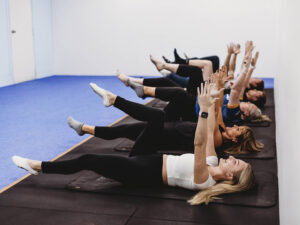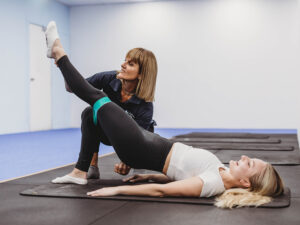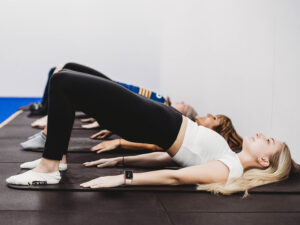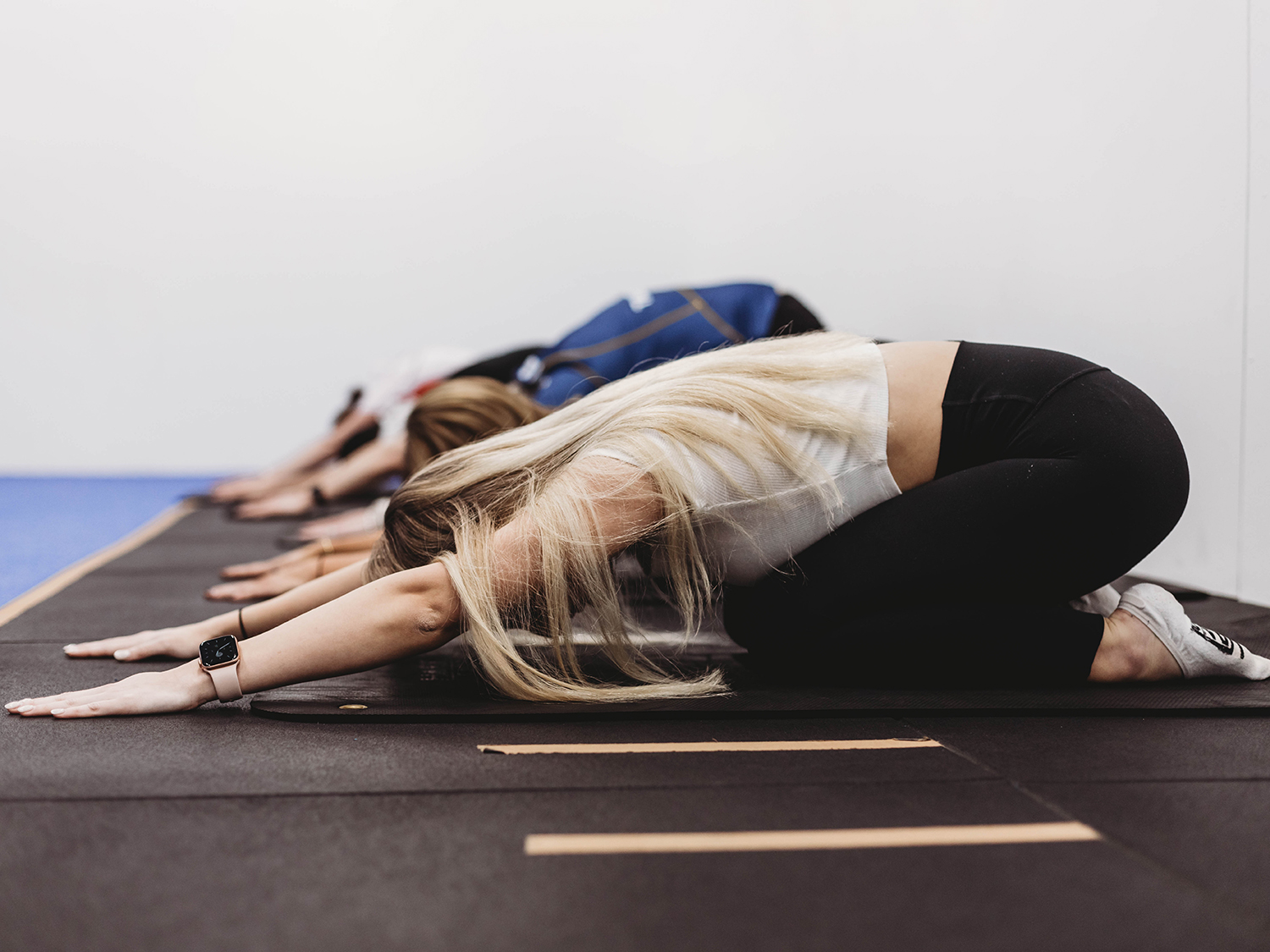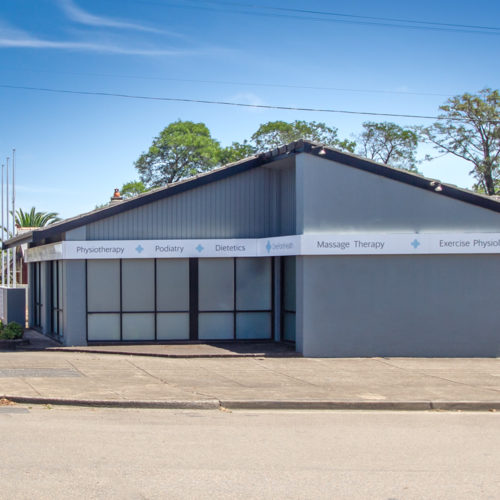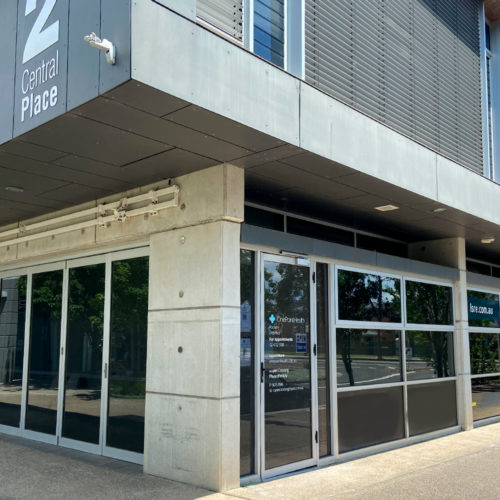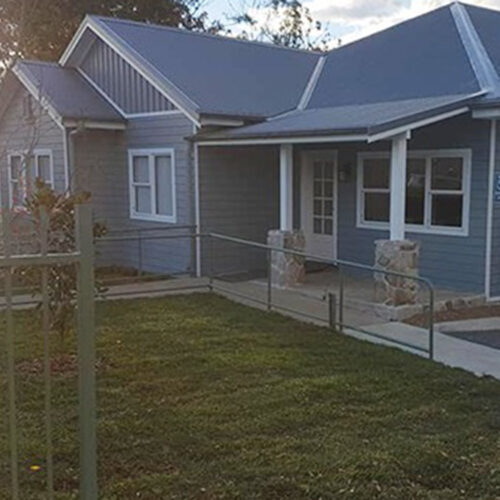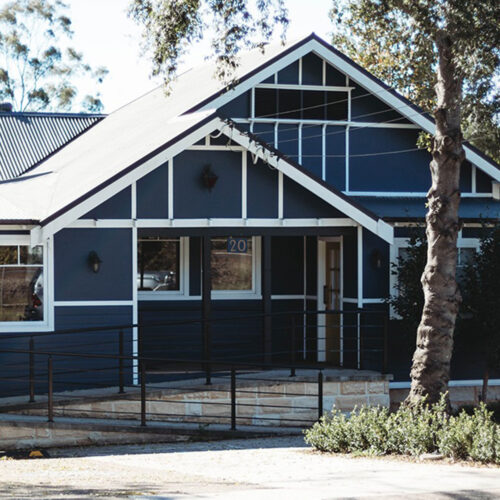Looking for a workout that is low impact, easily adaptable and improves your everyday functional movement? Pilates is the dark horse of workouts, you don’t need to complete HIIT workouts to get a great workout.
What is Pilates?
Pilates is a term used to describe an exercise activity created by Joseph Pilates and his wife Clara in the 20th century. During World War I, Pilates worked as an orderly in a hospital with patients bed written unable to walk, attaching springs to hospital beds to support patients’ limbs (a piece of equipment adapted and still used to this day – the Cadillac), allowing them to continue exercise for rehabilitation.
Pilates emigrated to the USA where he met Clara and together they developed and taught their method of body conditioning in their very own gym based in New York allowing individuals to improve technique (particularly amongst dancers) or rehabilitate from injury. This method continued to develop where adaptation occurred to suit the individual needs of each client, a tradition clinicians follow to this day.
Pilates is a popular method of exercise in today’s community that involves low-impact movements, focusing on strength, mobility, postural education, challenging coordination and control. Pilates can use gravity, breath or resistance in whole body movement to improve movement patterns transferring into functional daily activities. Commonly used resistance methods in pilates involve the use of body weight or the use of equipment including pilates rings, exercise bands, reformers etc.
Pilates exercises are based on principles such as breathing, concentration, control, centering, precision and flow. Pilates is a workout for both mind and body, focusing on the breathing cycle, encouraging natural movements of the rib cage when breathing, while controlling movements, facilitating core stability and challenging coordination and mind/body awareness. Pilates exercises aim to increase muscle strength and endurance, as well as flexibility and improve posture and balance while improving core stability including abdominals, gluteals, and paraspinal muscles.
Why should you do Pilates in an allied health clinic?
Our instructors are university qualified with a minimum of three-year studies and are educated in movement patterns that can be adapted to suit individual needs and fitness levels, removing the generic concept of pilates classes. Our instructors can modify exercises to suit the ability and level of individuals, particularly with consideration of injury, specific conditions or pregnancy.
What is the difference between Pilates and yoga?
Both pilates and yoga are low-impact exercises with a focus on mind and body control however Pilates has a more strengthening focus and can utilise external resistances in comparison to improving flexibility with muscles and joints found in yoga. Pilates is a form of exercise that can also be utilised in injury rehabilitation as well as prevention whereas yoga has more of a prevention aspect.
What are the benefits of pilates?
Pilates has a range of benefits including improvements in:
- Core strength, stability and endurance
- Posture and balance
- Flexibility and mobility
- Body awareness
- Daily functional movement patterns
- Breath control
- Concentration levels
Pilates can also:
- Reduce stress
- Decrease pain levels/recurrence of pain
- Be adapted to suit individual needs
- Rehabilitate functional movement following injury, pregnancy, surgery and spinal conditions
- Be suitable for any fitness level
Who is Pilates for?
Pilates has no limit for attendees and is highly beneficial being a low-impact form of exercise. Pilates has traditionally been beneficial for those managing
- Hypermobility
- Pre or post-orthopaedic surgery rehabilitation
- Injury rehabilitation
- Osteoporosis
- Osteoarthritis
- Spinal injuries or chronic low back pain
- Fibromyalgia
- Chronic fatigue syndrome
- Pre or post-natal individuals
- Ageing
When in doubt, seek advice from a Physiotherapist or your GP.
Pilates is run at our OnePointHealth Penrith clinic:
- Tuesday 5.30pm
- Wednesday 6.30pm
